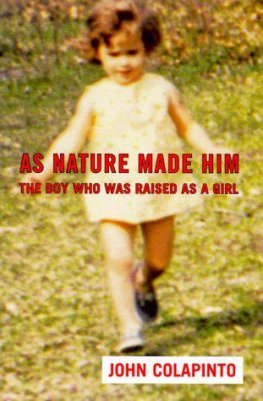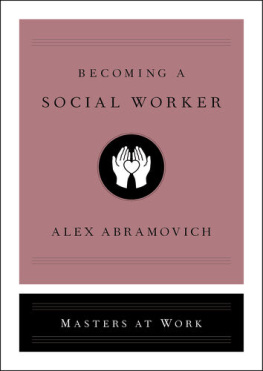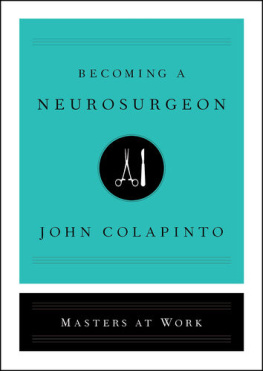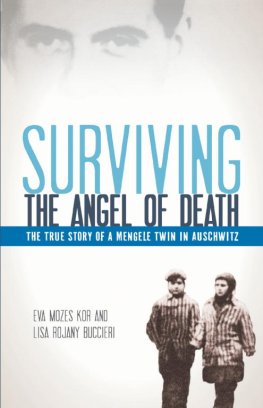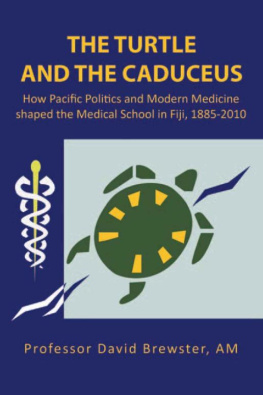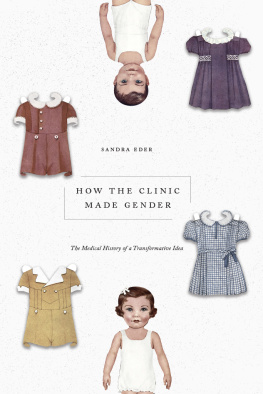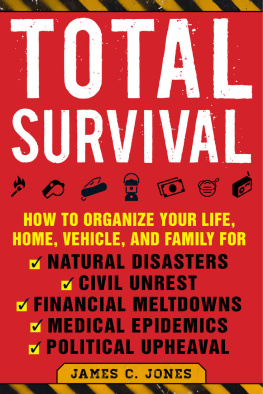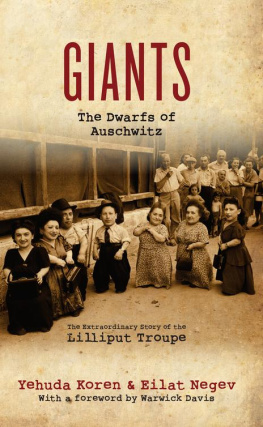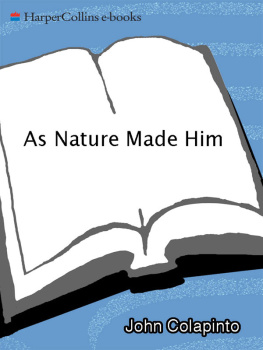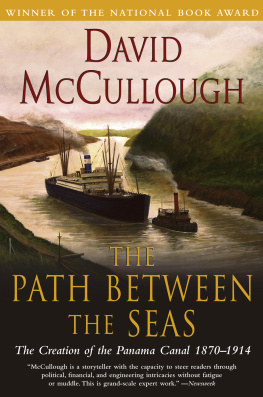John Colapinto - As Nature Made Him
Here you can read online John Colapinto - As Nature Made Him full text of the book (entire story) in english for free. Download pdf and epub, get meaning, cover and reviews about this ebook. City: New York, year: 2006, publisher: Harper Perennial, genre: Non-fiction / Science. Description of the work, (preface) as well as reviews are available. Best literature library LitArk.com created for fans of good reading and offers a wide selection of genres:
Romance novel
Science fiction
Adventure
Detective
Science
History
Home and family
Prose
Art
Politics
Computer
Non-fiction
Religion
Business
Children
Humor
Choose a favorite category and find really read worthwhile books. Enjoy immersion in the world of imagination, feel the emotions of the characters or learn something new for yourself, make an fascinating discovery.
- Book:As Nature Made Him
- Author:
- Publisher:Harper Perennial
- Genre:
- Year:2006
- City:New York
- ISBN:978-0061120565
- Rating:5 / 5
- Favourites:Add to favourites
- Your mark:
- 100
- 1
- 2
- 3
- 4
- 5
As Nature Made Him: summary, description and annotation
We offer to read an annotation, description, summary or preface (depends on what the author of the book "As Nature Made Him" wrote himself). If you haven't found the necessary information about the book — write in the comments, we will try to find it.
As Nature Made Him — read online for free the complete book (whole text) full work
Below is the text of the book, divided by pages. System saving the place of the last page read, allows you to conveniently read the book "As Nature Made Him" online for free, without having to search again every time where you left off. Put a bookmark, and you can go to the page where you finished reading at any time.
Font size:
Interval:
Bookmark:
John Colapinto
AS NATURE MADE HIM
The Boy Who Was Raised as a Girl
I have entered on an enterprise which is without precedent, and will have no imitator. I propose to show my fellows a man as nature made him, and this man shall be myself.
ROUSSEAU, ConfessionsHow could I not be glad to know my birth?
SOPHOCLES, Oedipus RexThe difficulty is to detach the framework of factof absolute undeniable factfrom the embellishments of theorists and reporters. Then, having established ourselves upon this sound basis, it is our duty to see what inferences may be drawn and what are the special points upon which the whole mystery turns.
Memoirs of Sherlock HolmesAuthors Note
THIS IS A WORK OF NONFICTION. All passages of dialogue are taken verbatim from tape transcripts of psychological interviews, from contemporaneous psychiatric session notes, or from the direct recollection of witnesses to, or participants in, these events. No dialogue or scenes have been invented for the purposes of narrative flow, atmosphere, or any other quasi-novelistic purpose. The account of Dr. Moneys appearance on the Canadian Broadcasting Corporation television show in 1967 is taken from a videotape of that programa tape that was, miraculously, not destroyed in the thirty years since its broadcast. Direct dialogue from the Psychohormonal Research Unit sessions (published here for the first time) is taken from tape transcripts which Dr. Money supplied to the patient in June 1998 upon the request of the patients local physician.
Preface
ON THE MORNING of 27 June 1997 I paid my first visit to David Reimers home, a small, nondescript dwelling in a working-class neighborhood of Winnipeg, Manitoba. There was nothing about the house to suggest that its owner might arouse the interest of a journalist from New York Citynot to mention the fascination of scientists and doctors the world over. On the well-tended lawn, a childs bicycle lay on its side. At the curb was parked an eight-year-old secondhand Toyota. Inside the house, a handmade wooden cabinet in a corner of the living room held the standard emblems of family life: wedding photos and school portraits, china figurines, and souvenirs from family trips. There was a knock-off antique coffee table, a worn easy chair, and a sofawhich was where my host, a wiry young man dressed in a jean jacket and scuffed work boots, seated himself.
At thirty-one years of age David Reimer could have passed for more than a decade younger. Partly it was the sparseness of his facial hairjust a few blond wisps that sprouted from his jawline; partly it was a certain delicacy to his prominent cheekbones and tapering chin. Otherwise he looked and sounded like what he was: a blue-collar factory worker, a man of high school education, whose fondest pleasures were to do a little weekend fishing with his dad in the local river or to have a backyard barbecue with his wife and kids. He was the kind of rough-edged but affable young man whose conversation ran to such topics as his tinkering with his car engine, his work woes, or the challenges of raising three kids on less than forty thousand a year.
I had come to Winnipeg to learn all I could about David Reimer, but my chief interest was in his childhooda subject that, when I raised it, brought an immediate and dramatic change in him. Gone was the smile on his face and the bantering tone in his voice. Now his brows gathered together above his small straight nose, his eyes began to blink with startled rapidity, and he thrust his chin forward like someone whod just been challenged to a fight. His voicea deep, burred baritonetook on a new pitch and rhythm, an insistent, hammering rhythm, which for all its obvious aggrievement and anger also carried the pleading edge of someone desperate to communicate emotions that he feared others could never understand. How well even he understood these emotions was not immediately clear. I noticed that when David described events that had occurred prior to his fifteenth birthday, he tended to drop the pronoun I from his speech, replacing it with the distancing youalmost as if he were speaking about someone else altogether. Which, in a sense, he was.
It was like brainwashing, he was saying as he lit the first in an unbroken chain of cigarettes. Id give just about anything to go to a hypnotist to black out my whole past. Because its torture. What they did to you in the body is sometimes not near as bad as what they did to you in the mindwith the psychological warfare in your head.
He was referring to the events that had begun to unfold on an April morning three decades earlier when, at eight months of age, he lost his entire penis to a botched circumcision. As a result of that irreparable injury, his parents had taken him to see a famed expert in sex research at the renowned Johns Hopkins Hospital in Baltimore where they were convinced to submit their son to a surgical sex change. The process involved clinical castration and other genital surgery when he was a baby, followed by a twelve-year program of social, mental, and hormonal conditioning to make the transformation take hold in his psyche. The case was reported in the medical literature as an unqualified success, and he became one of the most famous (though unnamed) patients in the annals of modern medicine.
It was a fame that derived not only from the fact that his medical and surgical metamorphosis from boy to girl was the first infant sex reassignment ever reported on a developmentally normal child, but also from a stunning statistical long shot that lent special significance to the case. He had been born an identical twin. His brother and sole sibling provided to the experiment a built-in matched controla genetic clone who, with penis and testicles intact, was raised as a male. That the twins were reported to have grown into happy, well-adjusted children of opposite sex seemed unassailable proof of the primacy of environment over biology in the differentiation of the sexes. Textbooks in medicine and the social sciences were rewritten to include the case, and a precedent for infant sex reassignment as standard treatment in cases of newborns with injured or irregular genitals was established. The case also became a touchstone for the feminist movement in the 1970s, when it was widely cited as proof that the gender gap was purely a result of cultural conditioning, not biology. For Dr. John Money, the medical psychologist who was the architect of the experiment, the so-called twins case became the most publicly celebrated triumph of a forty-year career that in 1997 earned him the accolade one of the greatest sex researchers of the century.
But as the mere existence of the young man who sat in front of me on that morning in June 1997 would suggest, the experiment was a failurea fact not publicly revealed until that spring, in the medical journal Archives of Pediatrics and Adolescent Medicine. There, authors Dr. Milton Diamond, a biologist at the University of Hawaii, and Dr. Keith Sigmundson, a psychiatrist from Victoria, British Columbia, had documented how David had struggled against his imposed girlhood from the start and how, at age fourteen, he had reverted to the sex written in his genes and chromosomes. The paper had set off shock waves in medical circles around the world, generating furious debate about the ongoing practice of infant sex reassignment (a procedure more common than a layperson might think). The paper also raised troubling questions about the way the case had been reported in the first place, why it had taken almost twenty years for a follow-up to reveal the actual outcome, and why that follow-up was conducted not by Dr. Money or Johns Hopkins, but by outside researchers. The answers to these questions, fascinating for what they suggest about the mysteries of sexual identity, also brought to light a thirty-year rivalry between eminent sex researchers, a rivalry whose very bitterness not only dictated how this most unsettling of medical tragedies was exposed, but also may have been the impetus behind the experiment in the first place.
Font size:
Interval:
Bookmark:
Similar books «As Nature Made Him»
Look at similar books to As Nature Made Him. We have selected literature similar in name and meaning in the hope of providing readers with more options to find new, interesting, not yet read works.
Discussion, reviews of the book As Nature Made Him and just readers' own opinions. Leave your comments, write what you think about the work, its meaning or the main characters. Specify what exactly you liked and what you didn't like, and why you think so.

